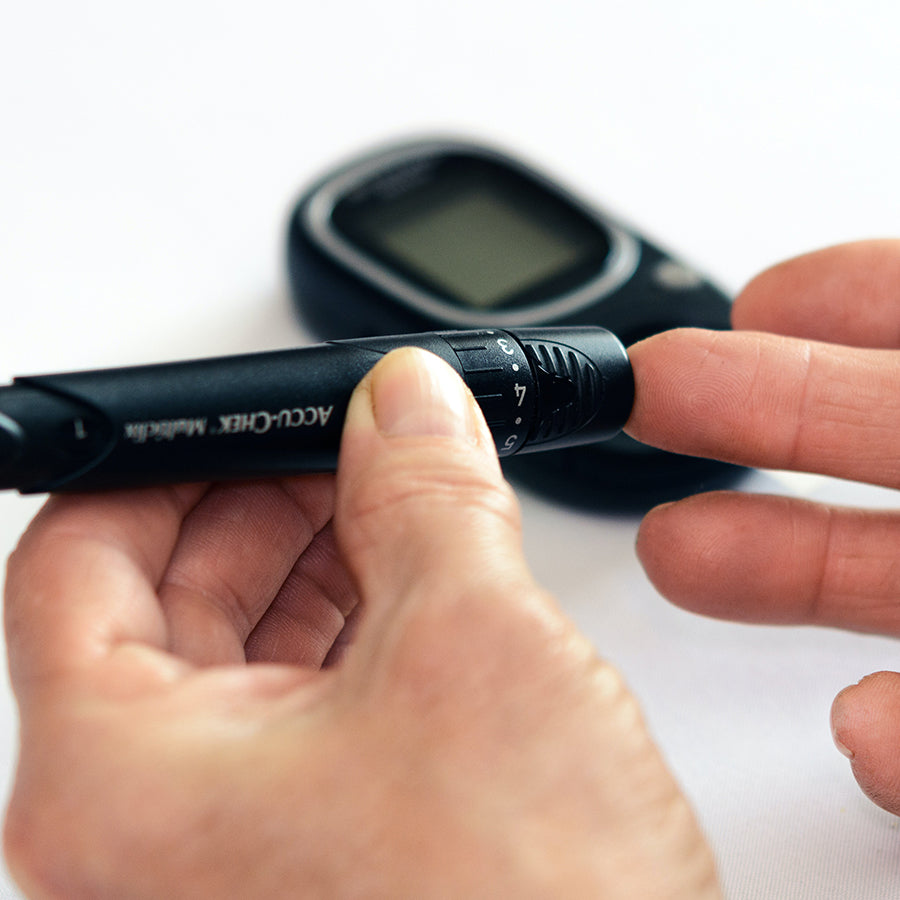
The Complete Guide to Intermittent Fasting (IF) and Diabetes
The practice of fasting is not new. Keeping a fast for religious purposes is a practice that dates back centuries. However, fasting for weight loss is a relatively new trend that has gained popularity partly because it appears to be successful for at least some individuals. In recent years, intermittent fasting (IF) has gained popularity due to celebrity endorsements and the publication of new IF diet books.
Let's learn in detail the link between intermittent fasting and diabetes.
How Does Intermittent Fasting Work?
Fasting is so common that you've likely done it even if you haven't attempted it. In addition, many diagnostic and surgical procedures and blood tests need patients to fast beforehand.
Fasting reduces calorie intake. Therefore it can be helpful for people trying to manage their diabetes, stated a dietitian specializing in the condition. "A higher metabolic rate is also the result of the hormonal changes brought on by fasting, including an increase in growth hormone, an increase in norepinephrine, and a decrease in insulin. Intermittent fasting causes weight loss due to all of these factors."
Skipping meals and only eating at specific times, limiting calories on some days of the week, and regularly eating on others are only two examples of how intermittent fasting might be practiced, as described by the Association of Diabetes Care & Education Specialists. The authors of the Nutrients analysis report that the three most popular types of intermittent fasting (IF) diets are the 16-hour daily fast, the 24-hour fast on alternate days, and the two-days-per-week non-consecutive fast.
Researchers' Opinion on Intermittent Fasting (IF) and Diabetes
Dietitians and scientists once viewed intermittent fasting as risky. Therefore few high-quality clinical studies examine its impact on diabetes. Recent studies, however, suggest that the approach may also be helpful for people with diabetes. Consequently, public perception is beginning to change.
Research has shown that intermittent fasting leads to significant weight loss and improved insulin sensitivity as a side effect. A study of 13 people with type 2 diabetes found that after IF, their insulin resistance decreased. This study was published in Hormone and Metabolic Research in August 2021 and stated that patients with type 2 diabetes often develop insulin resistance, leading to elevated blood sugar levels because insulin cannot effectively remove glucose (sugar) from the bloodstream.
Also, a review of previous research published in February 2021 in the journal Clinical Diabetes and Endocrinology showed that intermittent fasting lowered blood sugar levels, body weight, and blood sugar levels after meals in people with type 2 diabetes. However, despite these trials, experts say that more research is needed to determine if IF is safe for all people with type 2 diabetes.
Blood sugar regulation may be compromised as a result of intermittent fasting, among many other adverse outcomes.
However, some experts warn that intermittent fasting might be harmful, particularly for those who must keep their blood sugar levels steady. First, not eating regularly can deteriorate your blood sugar control, drain your stamina, and put you at greater risk of injury. People who skip meals may also choose unhealthy foods, which may inverse their waist circumference and blood sugar levels. For those who have gone without food for a while, a carbohydrate-rich pastry or bowl of spaghetti might do the trick.
A plan that significantly restricts caloric intake or entails meal skipping is also hard to follow long-term, states one expert. People with diabetes may benefit from losing weight because insulin sensitivity improves. But gaining weight may reverse, making people with diabetes get into problems more likely.
Diabetic people are more likely to experience IF if they experience hypoglycemia. A study in Diabetic Medicine found that IF doubles type 2 diabetics' risk of hypoglycemia. In addition, some diabetes drugs, such as sulfonylureas and insulin, may put their patients at an increased risk for this life-threatening adverse effect.
Avoid intermittent fasting (IF) in Certain Conditions Includes:
Doctors recommend avoiding IF if you're
- Pregnant or breastfeeding
- Have a severe medical problem
- When you need more nutrition
Pregnant or breastfeeding women need more calories for themselves and their babies, and fasting can cause women to run out of glucose and burn fat, tissue, and muscle. In addition, the fetus may be in danger if the mother develops an abnormally high level of ketones (a byproduct of fat metabolism).
A condition known as diabetic ketoacidosis (DKA) can develop in persons with diabetes when the body does not produce enough insulin to properly move glucose (blood sugar) into the cells that can be used for energy. According to experts, when this occurs, the liver responds by creating excessive ketones, which can accumulate in the body and cause kidney problems and brain swelling. A study warns that DKA can cause a diabetic coma or even death.
Several case studies, including one in October 2020 in the Journal of the Endocrine Society and another study in November 2019 in the American Journal of Case Reports, reveal a link between intermittent fasting (IF) and diabetic ketoacidosis (DKA) when associated with a ketogenic diet.
Even without diabetes, skipping meals and limiting food types can cause nutritional deficits. In addition, loss of muscle mass can occur if one does not get enough protein in their diet. "Muscle is broken down with fat when a person is severely malnourished.
Key Consideration: Before Beginning the Common Diet Plan
According to expert, those with type 2 diabetes who engage in intermittent fasting may have valid concerns regarding blood sugar management. Consequently, it is crucial to talk to your doctor about intermittent fasting, to regularly monitor your blood sugar, and to be aware that your medications may need to be varied. You can get help from your nutritionist and diabetic care, and education specialist.
Consider the following details before attempting IF:
- Make an appointment with your doctor.
Talk with your doctor about a safe plan for intermittent fasting and see if any adjustments need to be made to your current medications before you start. Patients on insulin must use extraordinary caution: If you're on medicine and reduce your food intake, you may be at risk for low blood sugar, which can cause dizziness, confusion, seizures, and loss of consciousness. Untreated hypoglycemia (low blood sugar) in diabetics can be lethal.
- Discover a strategy that works for you.
The IF plans are not the same for every diabetic patient. Many people only eat during certain times or on specific days of the week. Experts say that longer, more rigorous programs can involve fasting for up to 36 hours over 7 or 14 days, though this is not generally recommended for those with type 2 diabetes. Get on a schedule you can keep up with for the time being.
- Be ready for the unexpected.
Headaches, stomach cramps, bowel issues, and/or diarrhea are common, at least initially. You shouldn't feel ill or lethargic even if you're hungry. However, if you're feeling extremely sick, it's best to stop, reports the expert.
- Healthful food should be a priority.
You should take a multivitamin and drink enough water to avoid dehydration and headaches, even if you're cutting back on your food intake. Your diet should consist primarily of whole, unprocessed foods like non-starchy veggies, protein, and healthy fats. Eating well can help you reach or keep your ideal weight and steady your blood sugar.
- Essential to keep your expectations in check.
Some patients may not respond well to IF, and your healthcare team may decide that it is not the right course of action for you. In addition, people with diabetes should have medical clearance before beginning intermittent fasting because extended fasting might be harmful or, at the very least, may not produce the desired effects.
- Achieve backing.
If your doctor gives you the green light to try intermittent fasting, it might be helpful to do the diet with a friend or to join a community of people who are also doing it.
If your doctor approves, intermittent fasting may help you manage diabetes by promoting weight and fat loss.
Consequences of Intermittent Fasting for People with Diabetes
Blood sugar fluctuations are a risk with intermittent fasting that may make it unsuitable for people with uncontrolled diabetes. Alternate methods that align with intermittent fasting include:
- reducing portion sizes,
- increasing physical activity between meals, and
- swapping less nutritious foods for more healthy options.
The Takeaway
Research states that intermittent fasting (IF), in which individuals limit their meals to a specific period and eat very little or nothing for a set amount of time, can help people lose weight, reduce their waist size, and lower their blood pressure, blood sugar, and total cholesterol.
Note: Your plan should be personalized to your lifestyle, type 2 diabetes symptoms, and dietary needs after consulting with your care team, which should include a diabetes-specialist dietician.
If you have type 2 diabetes, you should check your body mass index (BMI), blood pressure, blood sugar, and total cholesterol levels. This is because each of these factors has a part in the development of the condition. There are, however, considerations to make beforehand.


